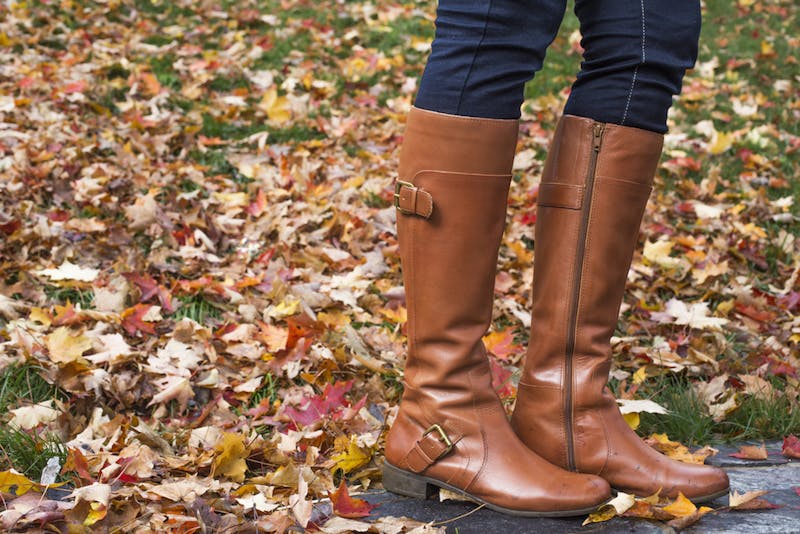Boots may look great. But they should feel great, too. “Look for a boot with a nice wide toe box, good arch support and side-to-side stability,” advises podiatrist Gina Hild, DPM. Follow her tips on choosing and wearing boots, and your feet will be forever grateful.
High-heeled boots
- These boots can tighten your heel cords and load weight onto your forefoot. They can worsen capsulitis (inflamed ligaments at the base of a toe) and neuromas (thickened nerve tissue between toes).
- While high-heeled boots won’t cause bunions, they can make them worse.
- Surprisingly, boots with a 1-1/2-inch or lower heel sometimes ease Achilles tendon or heel pain.
Sheepskin boots
- Love Uggs-style boots? So do bacteria and fungus. They crave the sweaty warmth.
- Always wear socks with these boots. When they get damp, put on a fresh pair.
- Sheepskin boots offer zero arch support, so you’ll need to add your own arch — especially if your feet are flat.
- Don’t share or buy sheepskin boots secondhand. You may be sharing bacteria or fungus.
Wedge booties
- Their heels are usually high, accentuating pressure on your forefoot (ouch!).
- Avoid wedge booties if you’re dealing with neuromas or capsulitis.
- Wedge booties also offer no side-to-side support — a problem if your feet are flat or your ankles are unstable.
Riding boots
- Your feet will appreciate the lower heel.
- A rounder, extra-deep toe box makes riders a great choice if you have hammer toes or bunions.
- But the insole is often flat and rigid, causing foot pain such as plantar fasciitis.
- For more support, invest in shoe insoles.
Cowboy boots
- Cowboy boots are not a good choice if you have bunions or hammer toes.
- Their narrow toes can accentuate forefoot pain.
- Cowboy boots without arch support can also worsen the pain of flat feet.
- But the higher heel often helps those with plantar fasciitis or Achilles tendonitis.
Tips for buying and wearing boots
- Before you buy boots, test them for support. “It should not be easy to bend a boot in half from back to front, or from side to side,” says Dr. Hild.
- Always change up your footwear. Avoid wearing the same boots day in and day out. If your boots get wet, dry thoroughly before putting your feet in them.
- Shop with insoles if you have diabetic neuropathy. Add a diabetes insole to boots to relieve pressure. Choose boots with a nice wide toe box that won’t rub against hammertoes or bunions. Always bring your insole shopping to make sure boots won’t crowd your foot when they’re in place. Watch for rubbing, too, and check your feet frequently.
- Keep feet toasty if you have Raynaud’s syndrome. Make sure boots stay warm and dry — the warmer, the better. Pick a boot that will not rub your foot, with plenty of room in the toe box.
SOURCE: https://health.clevelandclinic.org/2016/10/which-boots-are-best-for-your-feet/


